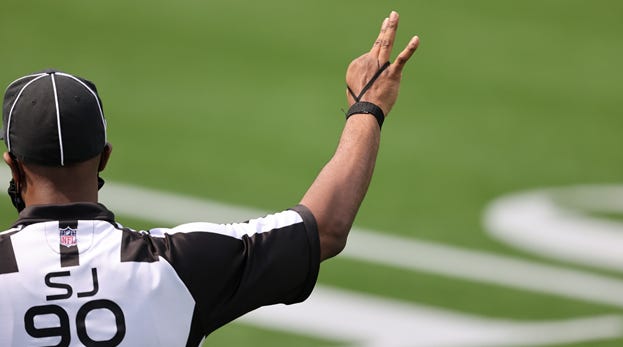The Gadget that Saved the NFL
A story, quote, and lesson about keeping solutions simple
In the NFL, a single mistake can swing a season.
And in 1968, that’s exactly what happened.
Late in a must-win game against the Chicago Bears, the Los Angeles Rams were driving down the field, scrambling against the clock. A long completion moved them toward scoring range, but a holding penalty wiped out the play. In the chaos, something much worse happened: the officiating crew forgot to reset the down.
A fresh first down at the Rams’ 47 became a mistaken second down. Then third. Then fourth.
And before anyone realized it, even the coaches, who were tunnel-visioned on the final seconds, the Rams had unknowingly run out of downs. The Bears got the ball back, the game ended, and the Rams’ playoff hopes evaporated.
The fallout was immediate. NFL Commissioner Pete Rozelle suspended the entire six-man officiating crew for the rest of the season. Not because they weren’t talented, they were considered one of the best crews in the league, but because the league finally understood just how catastrophic a simple oversight could be.
From that moment forward, the NFL adopted a tiny, almost laughably simple tool to prevent this from ever happening again: a soft wrist strap with a loop around the fingers to track the downs.

That humble loop, something that costs pennies, became standard across the league. Even today, in an era of high-tech replay systems, tablets, and instant communication, officials still slide that strap from finger to finger as the downs change. It’s quick, visible, tactile, and unmistakable.
Technology makes missing a down nearly impossible now… but the wrist strap made it impossible immediately. A tiny fix solved a giant problem.
“Any intelligent fool can make things bigger, more complex, and more violent. It takes a touch of genius, and a lot of courage to move in the opposite direction.”
— E.F. Schumacher, German-British statistician and economist
There’s something beautifully human about what happened here.
A massive institution, with millions of dollars and millions of fans on the line, solved one of its biggest failures not with a new department, or a sweeping protocol, or an advanced technological system but with a string on a hand.
We forget that life works the same way.
When something feels overwhelming, complicated, or high-stakes, our instinct is to build a complex solution. We think we need more tech, more strategy, more structure. But sometimes the answer is hiding in plain sight, something simple, practical, and embarrassingly low-tech.
A sticky note. A calendar reminder. A five-second pause before reacting.
Small things can prevent big mistakes. Small tools can create big accountability. And small solutions, when repeated consistently, can change everything.
So now I ask you:
Where in your life are you overcomplicating a problem that might only require a “wrist strap” of your own, a simple, small, almost silly fix that solves the issue once and for all?


